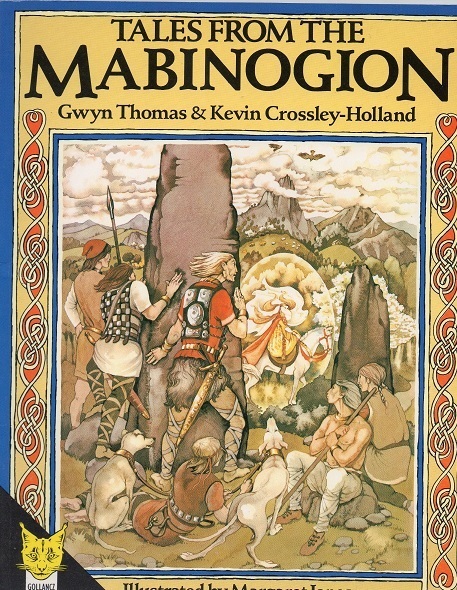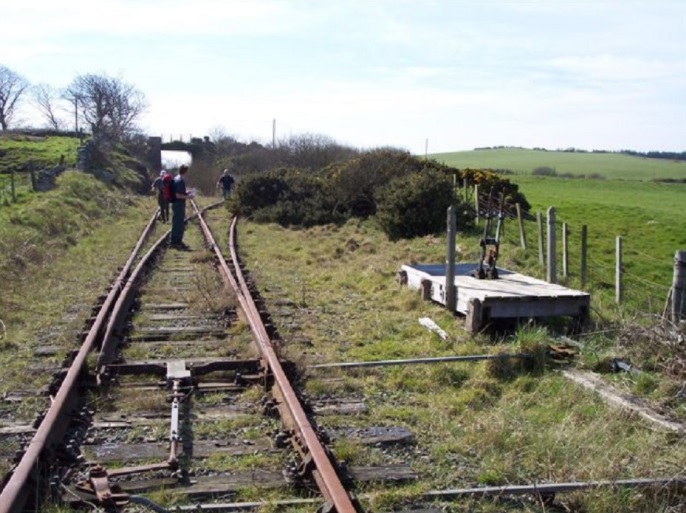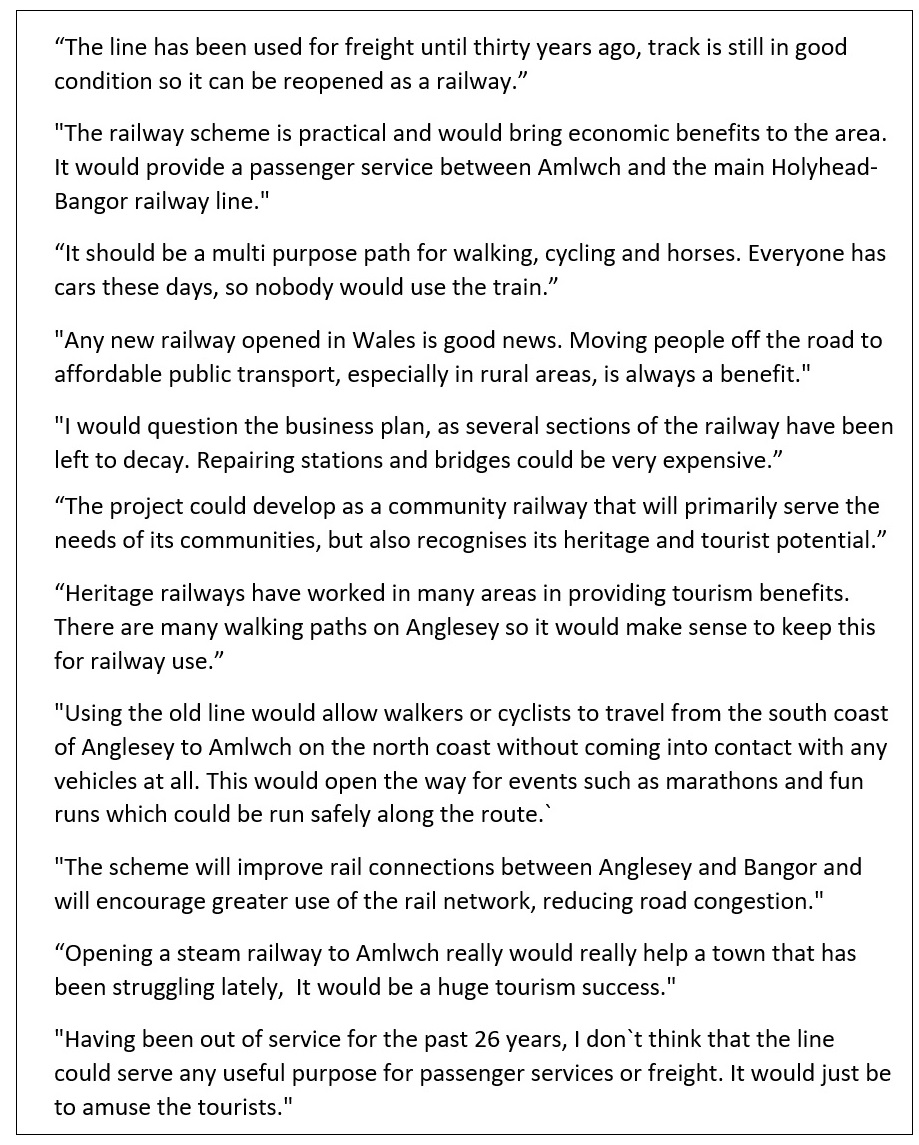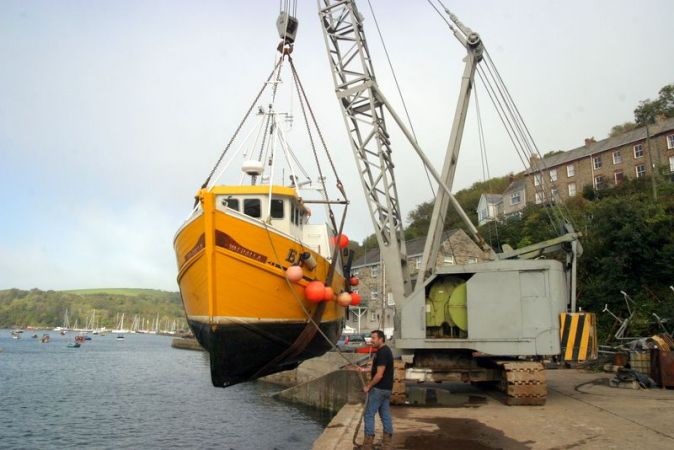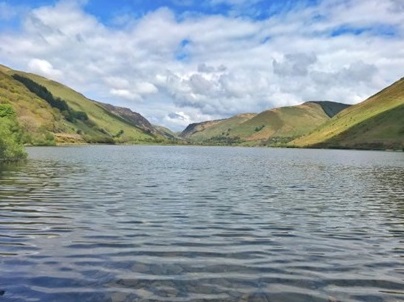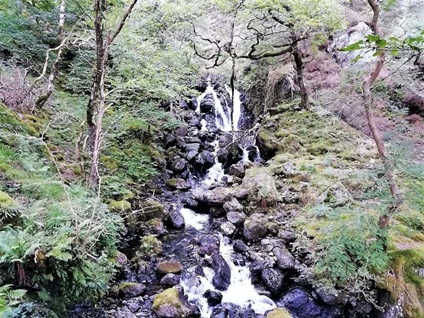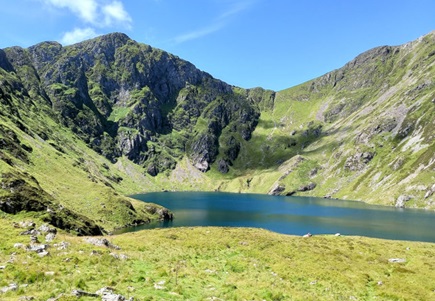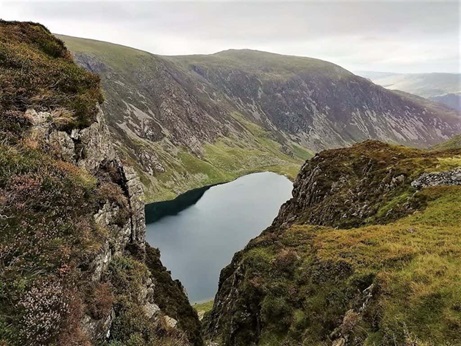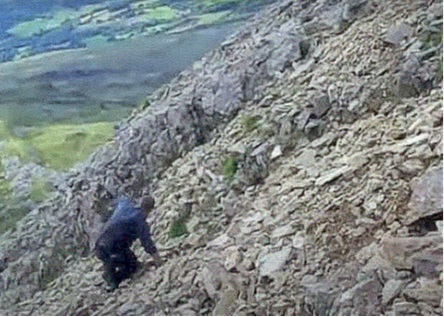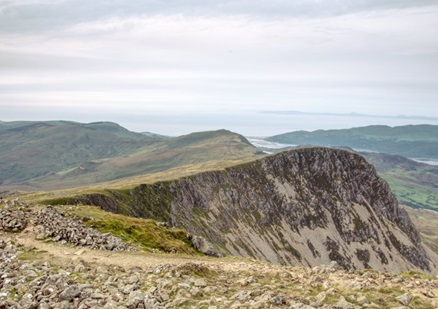The Mabinogion
Between 1838 and 1845, Lady Charlotte Guest published seven volumes of Welsh folk tales with the title `The Mabinogion`.
Charlotte was the daughter of an English earl, and had a great talent for literature and languages.
When she was 21 she moved to London and met John Josiah Guest, and they married the following year.
John Guest was the wealthy owner of an iron works in Merthyr Tudfil, and had been elected as a member of parliament.
The couple settled in Merthyr, and Charlotte developed a great interest in Celtic and medieval history.
She learned Welsh, and began work in translating the two earliest manuscripts of Welsh folk tales, the White Book of Rhydderch and the Red Book of Hergest.
The books had been written by hand in the 14th century.
The White Book of Rhydderch was produced by monks at Strata Florida Abbey, and contains poetry and religious texts as well as the folk tales.
The Red Book of Hergest contains further folk tales, and also a collection of herbal remedies of a family of doctors known as the Physicians of Myddfai.
The folk tales which were written down in the books would have been well known to the early Celtic people of Wales.
It is easy to imagine the tales being told around the fire at night in a village round house.
The tales would have been carried from village to village by storytellers, and handed down from generation to generation.
Charlotte Guest translated and published four volumes of stories which seem to be events in the lives of Welsh royal families.
Many of the events in the Mabinogion are imagined to have taken place in the western parts of Wales.
Other volumes include stories about the court of King Arthur.
The stories are fictional and full of magical and supernatural happenings.
In the second volume, the lady Branwen is kept prisoner in a castle in Ireland.
She trains a starling to carry a message to her brother in Wales to rescue her.
In the fourth volume, a beautiful woman Blodeuwedd is created out of flowers as a wife for Lleu.
They marry and rule the lands of Eifionnydd and Ardudwy.
The Mabinogion is the forerunner of modern fantasy such as `The Lord of the Rings` and `Game of Thrones`.
Translate the sentence:
Between 1838 and 1845, Lady Charlotte Guest published seven volumes of Welsh folk tales with the title `The Mabinogion`.
Suggested translation: (a number of alternatives acceptable)
